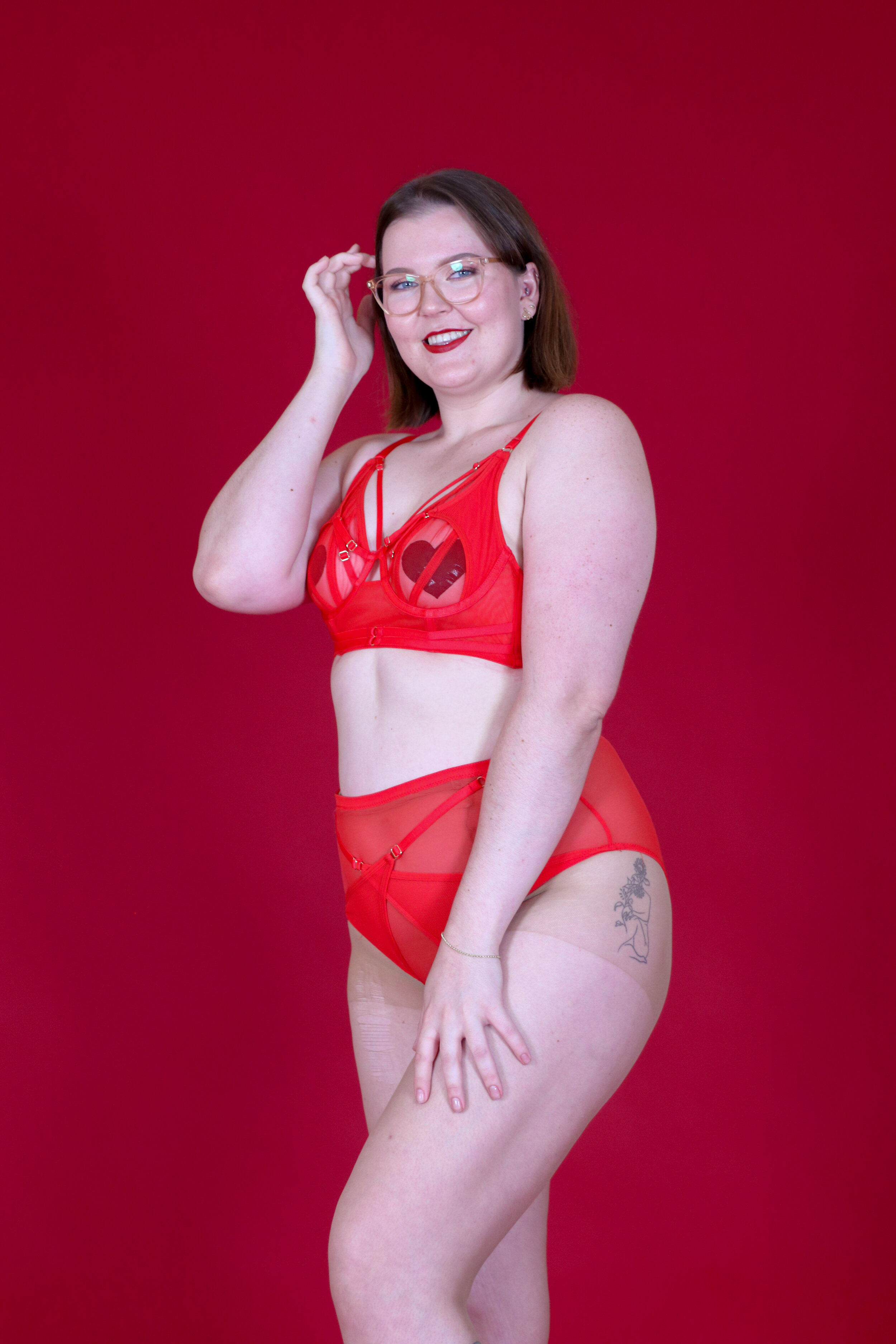Introduce yourself.
My name is Suzy, and I use They/Her pronouns. I am a 25-year-old, queer, non-binary, lyra and sling student. I have been at Sky Sirens since September 2020, however, I started aerial sports in March 2020!
Tell us about your conditions.
I have chronic mental health conditions, and I am neuro-diverse. Without going into lengthy detail, my primary diagnoses are Borderline Personality Disorder (BPD) and Attention-Deficit Hyperactivity Disorder (ADHD). I received my first mental health diagnosis in 2011, and almost yearly thereafter something further was added to the list. This all came to a head in August 2019, when I was diagnosed with BPD. This was a significant moment for me, as while I initially rebelled against the diagnosis, it provided an explanation for many of my struggles and behaviours.
I often joke that I am a living embodiment of ‘chaos’. I struggle to maintain a routine and experience multiple intense mood swings each day.
At risk of oversimplifying things, I am a highly sensitive person, and I react more strongly to an emotional stimulus than the average person.
How do these conditions affect your classes?
So in a sport where we experience frustration, physical pain and failure regularly, how do I deal with it if I’m more sensitive than the average person? Well, with great difficulty! Being unable to complete a move than I have been working on for weeks (or even if it is my first attempt), can be soul-crushing. I will have intrusive thoughts, want to quit, yell at someone, or cry. But on the other hand, I feel elated when I do finally nail a move. I can experience euphoria when I complete a routine and the instructor tells me how fantastic I looked.
Overall, I would say I experience exactly what every aerial student experiences. I just experience the swings, the highs, and the lows, a little more intensely.
Unfortunately, it doesn’t end at what moves or routines I can or can’t do. The comments, criticisms and suggestions of other people will also trigger a more intense emotional response. I have yet to have a bad experience at Sky Sirens, but I had them in other sporting environments, and have them in general life all the time. Not all comments are ill-intentioned, but they can hurt all the same.
In short, my advice to everyone would be that if someone seems to be reacting more strongly to something that wouldn’t bother you, don’t dismiss it or minimise it.
What do you want people to know about your conditions?
Suffering from an invisible condition can be quite alienating. On the face of it, I look like a normal person, and I am incredibly good at hiding my struggles in my interactions with other people.
It is only once you spend more time with me, or if you witness an outburst that the cracks start to show and you can see my vulnerability.
If anything, I hope this shows to people that you really don’t know what someone else is experiencing. It is so important to be kind, understanding and encouraging to everyone we engage with.



